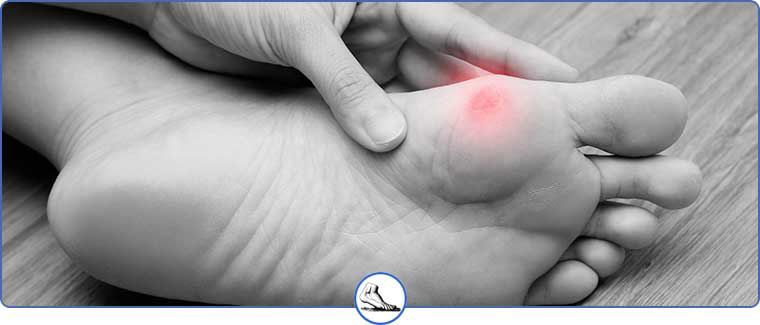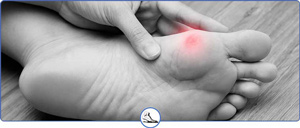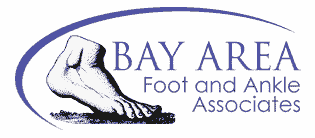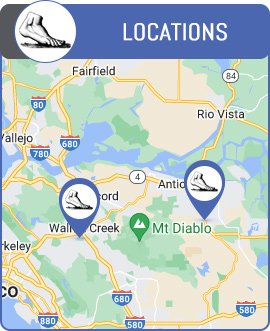Corns and Calluses Treatment Q&A
Corns and calluses develop from repeated pressure or friction, often caused by tight shoes or irregular foot mechanics. Treatment focuses on easing discomfort and safely removing the thickened skin. Dr. John W. Scivally, DPM, and Dr. Robin K. Lie, DPM can accurately diagnose the cause, provide safe removal, and recommend customized solutions like orthotics or footwear adjustments to prevent the issue from returning. Visit Bay Area Foot and Ankle Associates for professional care. For more information, contact us or book an appointment online. We have convenient locations to serve you in Walnut Creek, CA and Brentwood, CA.




Table of Contents:
What are corns and calluses?
How do corns and calluses form?
What happens if a corn is left untreated?
What are the most likely causes of corns and calluses?
Corns and calluses are thickened areas of skin when excess amounts of dead cells have built up. They most often occur on the feet due to the amount of pressure placed on them daily. Although corn and calluses are not dangerous or life-threatening, they can cause a great amount of discomfort and pain.
A callus is an area of skin that becomes thick due to irritation, pressure or friction. They most often occur on the feet; however, they can also occur on the hands, knees or elbows. Calluses, on the other hand, are yellowish or pale in color. They feel lumpy or thick to the touch, however, as the skin is thick, it is often less sensitive to sensations compared to the skin around it. Calluses have less defined edges than corns and are often bigger and wider. They commonly appear where the skin frequently rubs against something, such as a bone, an item of clothing or footwear, or the ground. They typically form on areas of skin that bear weight when a person is walking.
Corns usually form on smooth, hairless skin surfaces, particularly on the top of the toes or the sides of the feet. They have a clearly defined center that can be hard or soft and are usually small and circular.
Calluses and corns are not normally harmful or life-threatening but can sometimes lead to infections or ulcerations of the skin, particularly among those with poor circulation in the feet and people with diabetes.
Calluses and corns are caused by repeated irritation, pressure or friction on an area of skin that causes the skin cells to die and form a hard, thickened surface. A soft corn is formed in the same way, except sweat is trapped where the corn develops. This typically occurs between toes.
Untreated corns can lead to:
• Infection: Infected corns can cause multiple issues. In rare cases, septic arthritis can occur, which is when bacteria from the infected site spread to the joints. Infections can also spread to nearby bone tissue, which is known as osteomyelitis.
• Changes in posture and bodily alignment: When in severe pain, people often subconsciously change their posture or pressure distribution to avoid stepping on the painful area and thus causing discomfort. This can disrupt a person’s natural posture which can lead to problems with foot alignment that may affect the back and knees.
• Complications in people with diabetes: People with diabetes can suffer from complications of nerve damage in the hands and feet, therefore they may not be able to feel things like small cuts on the feet or corns.
The most common cause of corns and calluses is wearing footwear that does not fit properly. If shoes are too tight or do not fit properly, they may rub against the skin, causing excess friction and pressure. It is important to note that walking or running a lot can lead to corns and calluses, even if you are wearing shoes that fit well.
If you or someone you love is experiencing corns or calluses on their feet, come to Bay Area Foot & Ankle Associates for treatment today. Our kind and compassionate professionals are experienced in treating corns and calluses and can help you find relief. For more information, contact us or book an appointment online. We have convenient locations to serve you in Walnut Creek, CA and Brentwood, CA. We serve patients from Walnut Creek CA, Brentwood CA, Concord CA, Pleasant Hill CA, Pittsburg CA, Antioch CA, Alamo CA, Danville CA, and Oakley CA.
Check Out Our 5 Star Reviews


Additional Services You May Need
▸Custom Foot Orthotics
▸Ingrown Toenail Specialist
▸Traditional Podiatry Care
▸Foot and Ankle Surgery Clinic
▸Bunion Doctor
▸Corns and Calluses
▸Foot Arthritis and Joint
▸Warts
▸Video Gait Analysis
▸Athletic Taping
▸Pediatric Foot Specialist
▸Gait Abnormalities
▸Foot Dermatologist
▸Foot Deformities
▸Chronic Foot Injury
▸Diabetic Foot Specialist
▸Acute Foot Injuries
▸Podiatric Sports Services
▸Plantar Fasciitis Specialists


